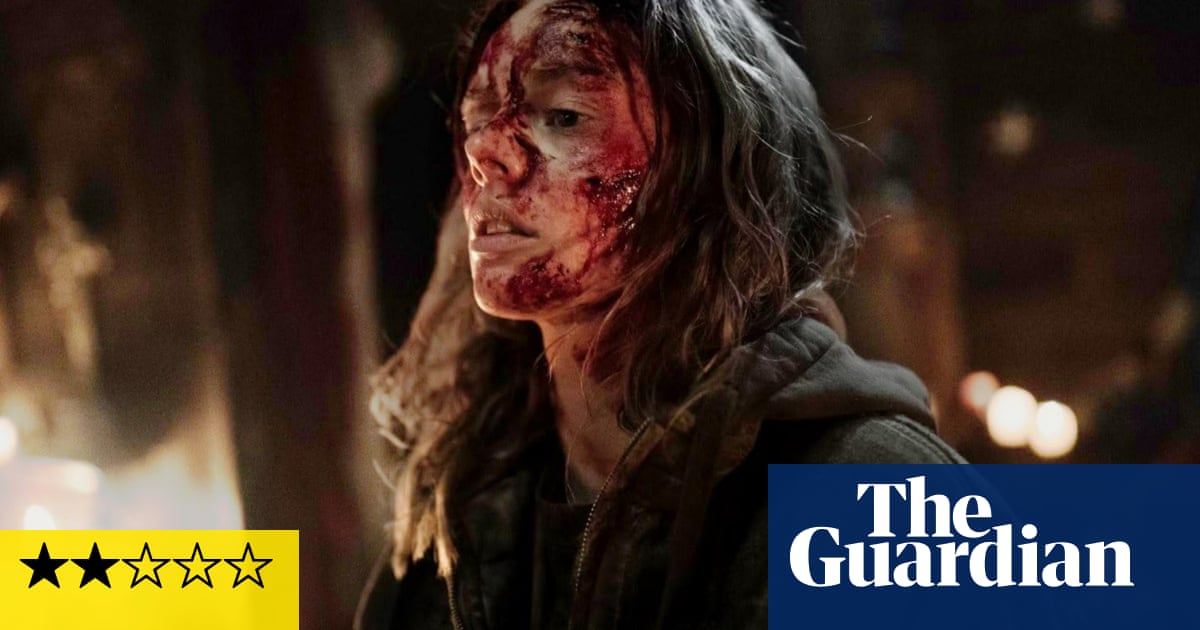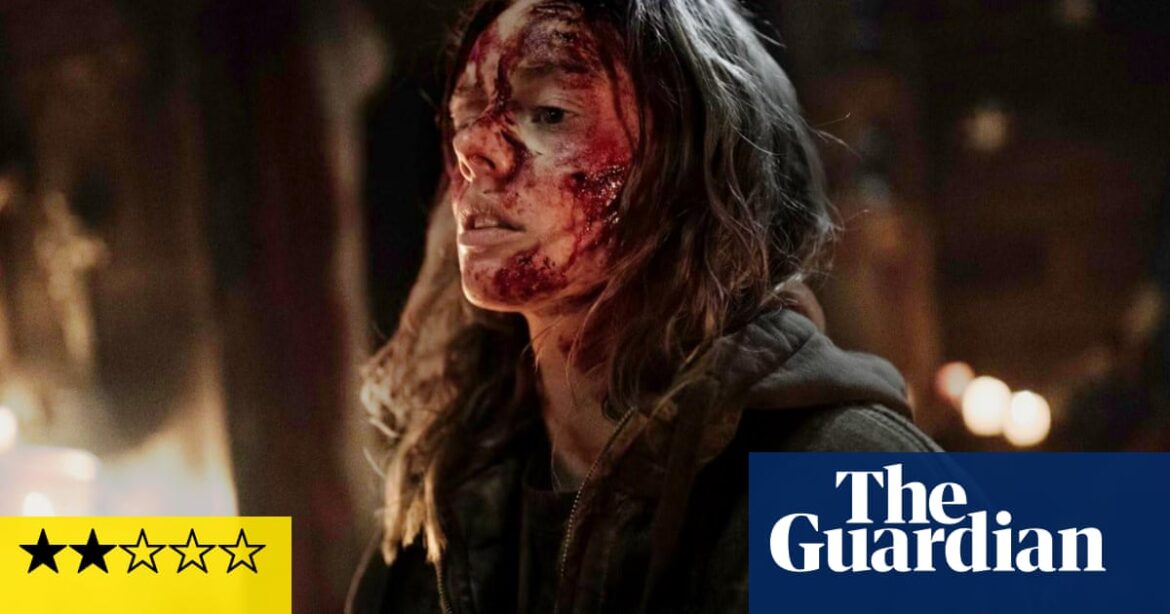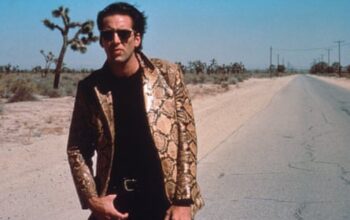
Here is a post-apocalyptic feature that works well as an exercise in tension-release horror-movie mechanics and features an admirably expressive, athletic, and entirely wordless lead performance from rising genre fare “it” girl Samara Weaving.
Text splashed on screen before the title explains that this is all taking place sometime after “the Rapture” has thinned the world population, and some of those who remain have renounced the “sinful” use of speech. Weaving’s protagonist, who is apparently called Azrael, is living in a forest with her beau (Nathan Steward-Jarrett), surviving on who knows what and living in patched rags, when they are captured by similarly silent zealots. Those guys, who still have cars in the Mad Max tradition, tie Azrael to a chair as sacrifice for hominid-like zombie-demon-monsters with charred skin and no eyes that smell blood, but somehow she escapes.
The rest of the movie goes on like this, with our Houdini-like heroine freeing herself, getting captured again, and freeing herself yet again in a constant if satisfyingly constructed rinse-repeat cycle. The textual breadcrumbs about the Rapture and whatnot point to a religious angle at play in the script, as does the heroine’s name. Meanwhile, it’s clear that the film-makers are impressed with what the A Quiet Place franchise did for dialogue-free cinema. At the very least, no jabbering on saves money on subtitles and makes the final product highly exportable to different national territories.
However, as an exercise in world-building, it’s a constant source of frustration. The paucity of information about why folks would have gotten rid of language also leaves the viewer to constantly wonder why the hell they’d get rid of such a useful human invention. How do the characters know the whistles they make mean “watch out, danger afoot” rather than “please come here”? If no one can talk, why do the credits name the heroine after an Islamic archangel of death in the first place? But the way the film makes the male characters fairly peripheral and Azrael’s big-boss final antagonist a heavily pregnant woman (Vic Carmen Sonne) is a bit of a hoot, and gorehounds will appreciate the film’s many beheadings and bloody murders.
Source: theguardian.com



